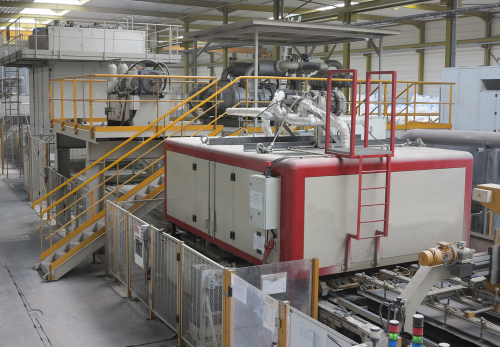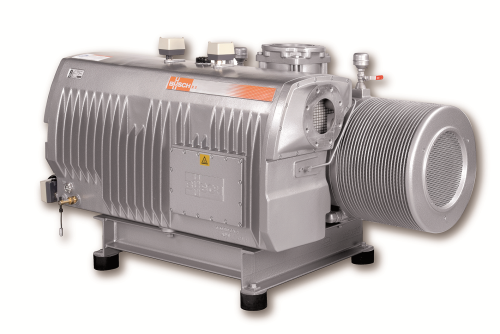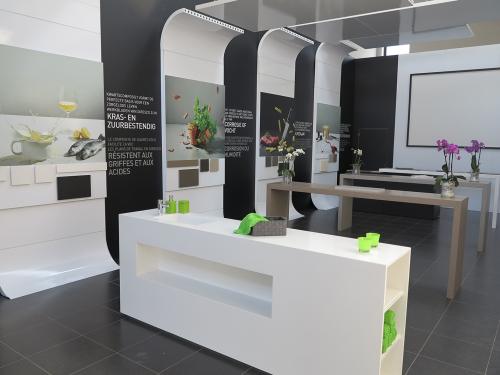


Diresco was founded in 2003, and specialises in synthetic stone slabs and tiles. Quartz granules are used to create materials deceptively similar in appearance to stone surfaces. Other surface textures can also be supplied. Diresco products are available in a number of finishes, from gloss to matt and “Anticato”. In comparison to real stone, synthetic stone has the advantage of reproducible appearance – the surface texture is always the same. Synthetic stone is resistant to water, food acids and food colourings. It is also scratchproof, non-fading, long-lasting and easy to clean.
Diresco markets its products to well-known kitchen and furniture manufacturers and interior decorators throughout Europe and in Canada, USA and New Zealand.
Quality control
All Diresco Stone products are manufactured at the main site in Opglabbeek in Belgium. 65 employees work with highly automated equipment in a three-shift system producing synthetic stone slabs with a dimension of 3.2 to 1.4 metres each.
After the mixing of various quartz granules and blending with synthetic resin, the material is fed automatically into a mechanical press. To create an absolutely perfect surface vacuum is applied to the pressing process. Even the smallest indentations and cavities can become visible after processing – the reduced pressure ensures that they cannot form.
The individual slabs are then hardened in an oven at 100 to 125°C.
After cooling they are stored for at least 24 hours before further processing. Every slab is subjected to extensive quality control examinations before leaving the factory.
Vacuum technology plays a major part in the manufacture of high-quality products, as even the smallest air or gas inclusions cannot be tolerated. The liquid ring vacuum pumps originally used for the vibrating press were unable to prevent the formation of all air, steam and styrene vapour inclusions. As a result, in 2006 the Diresco management decided to use Busch rotary vane technology. Two Busch R 5 rotary vane vacuum pumps with a pumping speed of 1600 m³/h each were installed, substantially increasing product quality and reducing the duration of the pressing process. Busch R 5 rotary vane vacuum pumps achieve an ultimate pressure of 0.1 mbar, which corresponds to a vacuum level of 99.99%.
A boost in demand
In order to meet increasing product demand, the pressing process was further accelerated by the addition of a Panda vacuum booster before the parallel arrangement of rotary vane vacuum pumps.
Diresco was extremely satisfied with this solution, and when a new production line was introduced in 2009 an identical Busch vacuum system was installed.
Maintenance work is carried out by Busch under a service contract. There are only two services per year, although at times the vacuum pumps are in operation 24 hours a day. Servicing is confined to inspection, oil change and filter replacement. All the smaller R 5 rotary vane vacuum pumps used in numerous production handling units are inspected at the same time.





